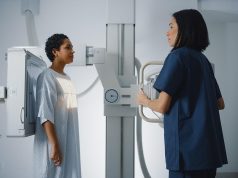
Benefit substantial for adults aged 50 to 75 years; benefit moderate for adults aged 45 to 49 years
TUESDAY, Oct. 27, 2020 (HealthDay News) — The U.S. Preventive Services Task Force (USPSTF) concludes that there is a substantial net benefit for screening adults age 50 to 75 years for colorectal cancer (CRC) and moderate net benefit for adults ages 45 to 49 years. These findings form the basis of a draft recommendation statement published online Oct. 27 by the USPSTF.
Jennifer S. Lin, M.D., from the Kaiser Permanente Center for Health Research in Portland, Oregon, and colleagues updated a prior systematic review to support the USPSTF in updating its recommendation on screening for CRC. The researchers found evidence that the guaiac fecal occult blood test performed every year reduces CRC mortality; screening with a fecal immunochemical test performed every year reduces CRC mortality; colonoscopy every 10 years reduces CRC mortality; and flexible sigmoidoscopy every five years reduces CRC mortality.
Based on these findings, the USPSTF recommends screening for CRC in all adults ages 50 to 75 years (Grade A recommendation), which can provide substantial benefit in reducing CRC mortality and increasing life-years gained. For adults ages 45 to 49 years, screening provides a moderate benefit (Grade B recommendation). For adults ages 76 to 85 years, clinicians should selectively offer screening; patients and clinicians should consider overall health and prior screening history to determine whether this screening is appropriate (Grade C recommendation).
The draft recommendation statement and evidence review have been posted for public comment. Comments can be submitted from Oct. 27 to Nov. 23, 2020.
Draft Evidence Review
Draft Recommendation Statement
Comment on Recommendation Statement
Copyright © 2020 HealthDay. All rights reserved.







